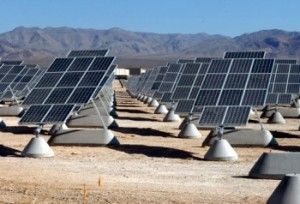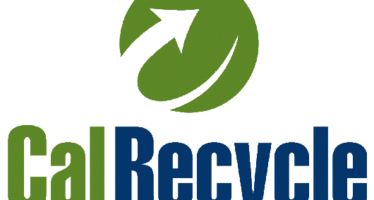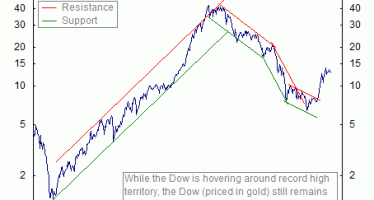Politics of CA solar power getting messier
 The standard narrative of solar power in California has long been that it’s a wonderful idea that everyone should embrace, a view touted by Democratic governors and Republican governors alike for nearly a quarter-century. But as CalWatchdog reported last week, this picture is less tidy than it used to be, with some Assembly Democrats objecting to Senate President Pro Tem Kevin de Leon’s plan for even more aggressive efforts to push cleaner-but-costlier energy on the grounds that it will hurt poor people in their impoverished districts.
The standard narrative of solar power in California has long been that it’s a wonderful idea that everyone should embrace, a view touted by Democratic governors and Republican governors alike for nearly a quarter-century. But as CalWatchdog reported last week, this picture is less tidy than it used to be, with some Assembly Democrats objecting to Senate President Pro Tem Kevin de Leon’s plan for even more aggressive efforts to push cleaner-but-costlier energy on the grounds that it will hurt poor people in their impoverished districts.
The Los Angeles Times also reported on how solar subsidies often amounted to a transfer of funds from the state government to very wealthy Californians.
As the understanding grows that green energy policies create political winners and losers, a new U.S. Energy Information Administration report shows how rapidly California is advancing with solar power:
Solar generation from utility-scale facilities (capacity of 1 megawatt [MW] or greater) hit a monthly record high of 2,765 gigawatt hours (GWh) in June 2015. The June 2015 solar generation level represents a year-over-year increase of 35.8 percent relative to June 2014. …
Most of the growth in U.S. utility scale solar generation is in California. In June 2015, well over half (56.5 percent) of total solar generation came from plants in California. Arizona (13.4 percent), North Carolina (6.7 percent), Nevada (6.4 percent), and New Jersey (3.3 percent), respectively, followed California as the largest solar contributors to the grid.
But it’s not the utilities building “utility scale” solar facilities. It’s usually multinational corporations setting up solar facilities in the expectation that Pacific Gas & Electric, Southern California Edison and San Diego Gas & Electric will buy their electricity to meet the state’s ever more ambitious goals for renewable-energy generation.
The utilities still have enough influence that they managed to persuade the California Public Utilities Commission to adopt a new pricing structure in July that made individual homeowners and businesses that have installed solar panels pay more toward maintenance of the state’s electricity grid.
Utilities: Part of ‘green industrial complex’ or not?
 This would seem to presage a future in which power utilities are part of a “green industrial complex” that conservative publications have long warned of — companies and institutions which seek to profit from government environmental mandates that appear popular in red states and blue states alike.
This would seem to presage a future in which power utilities are part of a “green industrial complex” that conservative publications have long warned of — companies and institutions which seek to profit from government environmental mandates that appear popular in red states and blue states alike.
But that’s not how the nation’s investor-owned utilities think the end game of current green politics are likely to play out. As The Washington Post reported earlier this year, it had obtained secret documents from the Edison Electric Institute, a utilities trade group that believes that the growth of renewable energy is an existential threat — not something that can be gamed by rent-seeking with regulators and state legislatures:
If demand for residential solar continue to soar, traditional utilities could soon face serious problems, from “declining retail sales” and a “loss of customers” to “potential obsolescence,” according to a presentation prepared for the group. “Industry must prepare an action plan to address the challenges,” it said.
That action plan so far has focused on getting state utility regulators to make solar-panel owners pay more toward maintenance of the electric grid — an effort that worked in California but that the Post notes hasn’t worked well in most states.
So whom might the utilities find common ground with in their fight against a solar power future? As complaints from urban Democrats in the Legislature suggest, an obvious candidate is lawmakers who understand that cleaner power is usually costlier power.
So far in California politics, the factions that make up the Democratic coalition have managed to stay on the same page on the biggest issues of the day. But if utilities begin to use their clout to warn that poor people are hurt by AB32-style policies — a potentially potent argument in the state with the highest effective poverty rate — that could roil and possibly recast the politics of the Golden State.
Chris Reed
Chris Reed is a regular contributor to Cal Watchdog. Reed is an editorial writer for U-T San Diego. Before joining the U-T in July 2005, he was the opinion-page columns editor and wrote the featured weekly Unspin column for The Orange County Register. Reed was on the national board of the Association of Opinion Page Editors from 2003-2005. From 2000 to 2005, Reed made more than 100 appearances as a featured news analyst on Los Angeles-area National Public Radio affiliate KPCC-FM. From 1990 to 1998, Reed was an editor, metro columnist and film critic at the Inland Valley Daily Bulletin in Ontario. Reed has a political science degree from the University of Hawaii (Hilo campus), where he edited the student newspaper, the Vulcan News, his senior year. He is on Twitter: @chrisreed99.
Related Articles
Gov. Brown in no hurry to address recycling headaches
California – a state that has long prided itself on being an environmental global pacesetter – is struggling with the most basic
O'Connell's Street Without Joy
Anthony Pignataro: I saw a lot of things driving into San Luis Obispo County this morning — rolling hills, wineries,
Chart shows warning on economy, CA budget
Since the 9/11 attack almost 13 years ago, the Federal Reserve Board has been inflating the dollar. Everybody has noticed




